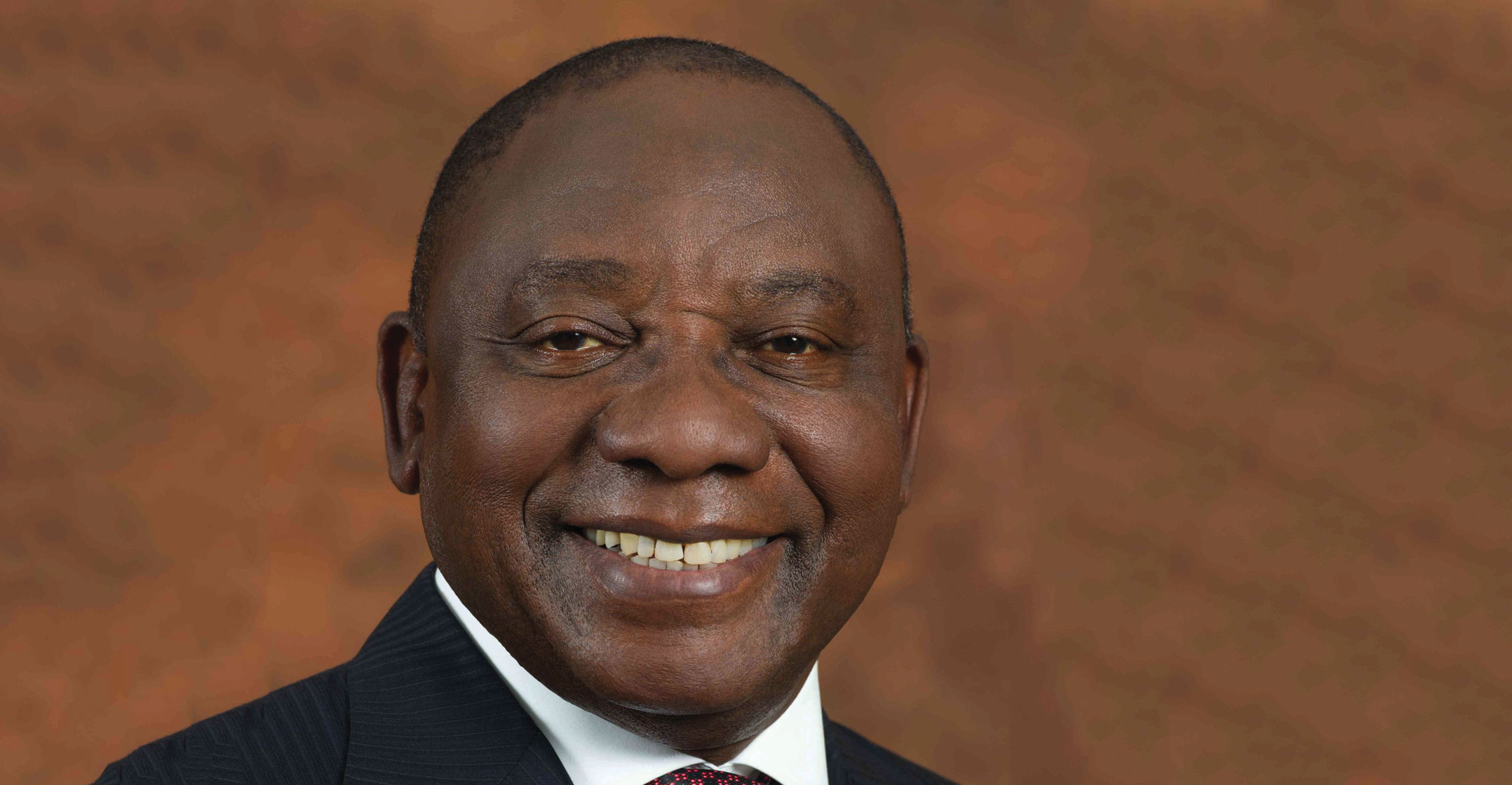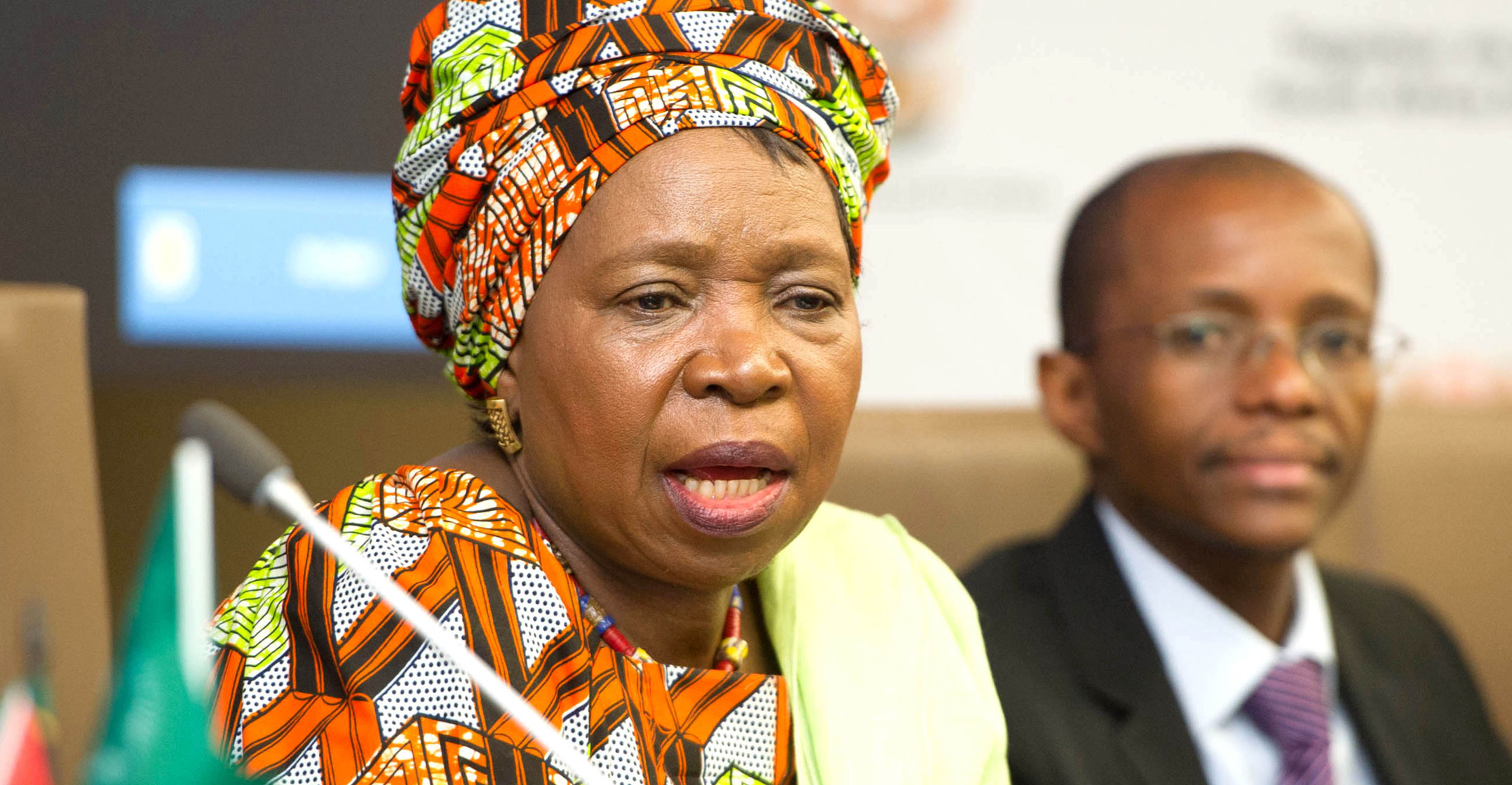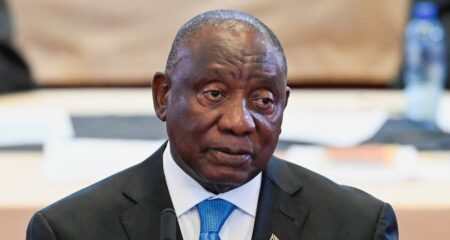
Deputy President Cyril Ramaphosa is leading in the race to become the next leader of the ANC with less than four weeks before the party’s elective conference, according to more than a dozen people familiar with the internal voting process.
Ramaphosa is dominating in his strongholds and has fared better than expected in KwaZulu-Natal, the province with the most delegates that’s traditionally been seen as backing President Jacob Zuma and his preferred successor, Nkosazana Dlamini-Zuma, according to the people, who asked not to be identified because they aren’t authorised to speak for the party. The South African Institute of Race Relations also put Ramaphosa in the lead in a report released on Tuesday but said Dlamini-Zuma still has a chance to win.
“Ramaphosa is in a comfortable position right now — when you look at the statistics, where things are, he might emerge as a victor,” said Benedict Dube, a political analyst at the Xubera Institute for Research and Development in Durban. “He is campaigning hard for himself, he has all the resources at his disposal to take this conference and he stands a good chance.”
The battle has opened a deep rift in the ANC and pitted Ramaphosa and party veterans against Zuma, who’s been mired in allegations that the Gupta brothers have used their friendship with him to win state contracts. At stake at the conference is the choice of who will lead the party that’s won every election since Nelson Mandela led it to power after the end of apartheid in 1994.
Ramaphosa, 65, has called for a clampdown on corruption and is the clear favourite among investors, as well as labour unionists and the South African Communist Party. Dlamini-Zuma, 68, has echoed her ex-husband calls for “radical economic transformation” to give the black majority a bigger share of wealth in one of the world’s most unequal countries and has won support from the ANC’s women’s, youth and military veterans leagues.
Party branches are choosing more than 4 000 delegates who will vote at the 16-20 December congress in Johannesburg, where Zuma will step down as head of the ANC. The next leader will also be the ANC’s presidential candidate in elections scheduled for 2019, when Zuma is due to leave office.
65% support
The Johannesburg-based SAIRR estimates that of the almost three-quarters of the ANC’s branches that have completed the nomination process, about 65% backed Ramaphosa and 31% Dlamini-Zuma, with the balance supporting other candidates. It warned that the data should be treated with scepticism.
“The nature of the race means that high-quality data is difficult to obtain and almost impossible to get officially authenticated,” Frans Cronje, the institute’s CEO, said in the report.
The institute expects a candidate to need the support of about 2 341 delegates to win the party presidency. Based on the branch nominations data, it estimates that Ramaphosa currently has the backing of about 2 245 delegates and Dlamini-Zuma 1 064.

It warned that tainted votes or decoy nominations could swing the final election against Ramaphosa, and that rigging, corruption, sabotage, internal appeals, court action and other schemes may influence the outcome of the race.
The votes Ramaphosa is gaining in KwaZulu-Natal, together with the support from his traditional strongholds places him at the forefront of the race, according to party officials familiar with the situation.
Ramaphosa enjoys the lion’s share of votes from his ancestral province, Limpopo, and Gauteng, the richest province, according to the people. Together with the support of members in the Northern Cape, Western Cape and Eastern Cape, he is already guaranteed to win a majority in five of the nine provinces.
Dlamini-Zuma, the former chairwoman of the African Union Commission, is expected to be solidly backed by North West and the Free State. They form the nucleus of the rural bloc that’s helped her ex-husband thwart challenges to multiple scandals that prompted calls from within the party for him to resign.
The bloc is weakened because one of its key elements, Mpumalanga, appears to have broken away from what is known as the Premier League.
While Dlamini-Zuma appears to have the edge on Ramaphosa in KwaZulu-Natal, with 230 votes to her rival’s 203, he is doing enough to split her heartland, according to the party officials. There are more than 300 branches that must still meet in that province, which has been allocated a total of 870 conference delegates, to nominate presidential candidates, they said.
“The arrogance of her supporters in KwaZulu-Natal is the downfall of Nkosazana Dlamini-Zuma,” Dube said. “They thought that by being arrogant and combative would appeal to the majority of ANC voters. They thought that strategy will propel her to the presidency.” — Reported by Sam Mkokeli and Mike Cohen, (c) 2017 Bloomberg LP




